This week’s theme is worms. Our “Growing Minds Day by Day” educational resource lists are designed for families and educators.
We hope these resources will provide you with inspiration. If you don’t find what you’re looking for here, be sure to check out our Lesson Plans page.
 Books:
Books:
Diary of a Worm
Our first book recommendation of the week is Diary of a Worm, written by Doreen Cronin. This hilarious story is recommended for kids ages 4-8, but we bet older readers will enjoy this book, too. Readers will learn a little bit about worms (they have no teeth, they never have to take a bath!), and get plenty of laughs along the way. Watch the book’s illustrator, Harry Bliss, do a very entertaining read-aloud of this story on YouTube.
Carl and the Meaning of Life
Our next book of the day is Carl and the Meaning of Life by Deborah Freedman, recommended for ages 3-5. Carl is an earthworm. He spends his days happily tunneling in the soil until a field mouse asks him a simple question that stops him short: “Why?” Carl’s quest takes him on an adventure to meet all the animals of the forest, each of whom seems to know exactly what they were put on this earth to do, 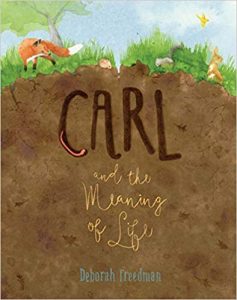 unlike the curious Carl. But it’s not until the world around him has changed that Carl begins to realize everyone, no matter how small, makes a big difference just by being themselves. Watch a librarian read this story aloud on YouTube.
unlike the curious Carl. But it’s not until the world around him has changed that Carl begins to realize everyone, no matter how small, makes a big difference just by being themselves. Watch a librarian read this story aloud on YouTube.
Find more books
Looking for more children’s books that celebrate the wonderful world of worms? Visit the Growing Minds’ farm to school literature database to browse our collection of recommended books. Type “worms” or “soil” into the search bar to find books that align with this week’s theme.
 Local Food Recipes:
Local Food Recipes:
Today’s recipe of the day is Apple Carrot Salad, a tasty, nutritious side dish or snack. This recipe features apples (which everyone knows that worms love!) plus carrots—root vegetables that grow underground where worms live.
Don’t forget to let your kids help prepare this dish! By helping out in the kitchen, children practice following directions, learn how to cooperate to complete a task, and hone their fine motor skills. Kids can…help wash the apples and carrots, cut up apple slices into small chunks using plastic knives, squeeze the lemon, measure the raisins and yogurt, and mix together the ingredients. After you eat, you can keep the learning going with some of the extension activities in our Apple Carrot Salad Lesson Plan.
Apple Carrot Salad
Serves 4-6
Ingredients:
- 4-5 apples
- 4-5 carrots
- ⅓ cup raisins
- Juice of 1 lemon
- ¾ cup vanilla yogurt
Directions:
- Wash the apples and carrots.
- Peel and core the apples. Cut the apples into small chunks. Add to a large bowl.
- Add the lemon juice to the cut apples and stir to combine.
- Peel and grate the carrots.
- Add the grated carrots and raisins to the large bowl.
- Add the yogurt to the apple-carrot mixture and stir to combine all ingredients.
- Enjoy!
Bowl of worms for dessert, anyone?
Check out this wikiHow tutorial for making your own gummy worms at home using gelatin, fruit juice, sugar, and plastic straws. If you don’t want to use plastic straws you can follow this tutorial instead and make your worms in a baking dish. Either way, your kids will shriek with delight!
 Educational Resources:
Educational Resources:
Worms: Nature’s Recycling Superstars!
Compared to some of the more elegant inhabitants of the garden, like bees and butterflies, earthworms don’t look very exciting. That said, appearances can be deceiving!
The humble worm plays an important role as one of nature’s recyclers, turning waste products such as fallen leaves into valuable resources that support life on Earth. Worms are examples of decomposers, or organisms that eat and break down dead organic material. Through the process of decomposition, worms make important nutrients (similar to the vitamins we need to be healthy) available to the plants that grow in soil. Worms also help to loosen and create space in the soil so that air can circulate, keeping plant’s roots healthy. Other decomposers you might find in the garden include fungi, millipedes, and pill bugs, plus tiny organisms that can only be seen with a microscope, like bacteria.
Visit the University of Illinois Extension website to learn more interesting facts about earthworms. Kids can also play their “Worm Deli” game to learn about what worms like to eat in the compost bin.
Backyard Composting Tips
You can help recycle organic waste, too! Composting your food scraps in a backyard compost pile is a great way to keep waste out of the landfill, reduce greenhouse gas emissions, and create rich, healthy soil to use in the garden. Composting is easy once you get the hang of it, but it can seem a little daunting if you’ve never tried it before. Check out these Backyard Composting Tips compiled by the City of Asheville for suggestions on how to get started. Visit CompostNow’s website to learn more about the environmental benefits of composting.
Growing Minds Lesson Plans
This week we’re recommending the following Growing Minds lesson plans:
- Worm Exploration: children will explore life cycles by learning about worms and the ways they benefit the garden and farms. Through reading literature and completing hands-on activities, children will conduct a worm investigation and observe that the organisms (and other animals) need food, air, and space to grow.
- Soil Exploration: children will learn about the properties of soil and why soil is important to plants. They will closely observe soil and practice tallying and reporting results of soil experiments.
- Soil Jeopardy: Students use books and handouts to create game show questions about soils and then form teams and play the game.
Activities:
The squirmy movements of worms are fun for children to imitate. Invite your child to get down on the floor and act out the movements of a wriggling worm as you recite the following rhyme.
A Tiny Worm
by Jean Warren
One day when I was playing,
I met a tiny worm.
Instead of going straight,
he* squirmed and squirmed and squirmed.
(Squirm around on the floor.)
Here now, let me show you
how he got around.
He wiggled, wiggled, wiggled
all across the ground!
(Wiggle across the floor.)
*Substitute she or they where appropriate.
Soil Observation
Take your children to the garden or yard and fill several jars halfway with soil. Add water nearly to the top of the jars. Put the lids on tightly. Shake the jars vigorously for thirty seconds. Let the jars stand until the dirt and water settle. Observe the soil layers in the jars. How many layers are there? Which layer is made of the biggest particles? Which is made of the smallest? Can your children guess why?
This Week in the Garden
Check out the Growing Minds This Week in the Garden (TWIG) newsletter for the third week in May for more garden activities, journal topics, and a seasonal strawberry smoothie recipe.
 Build a worm bin:
Build a worm bin:
For the ultimate worm observation opportunity, build a vermicompost bin (better known as a worm bin) with your children. Vermicomposting uses worms (typically red wiggler worms) to break down waste (like vegetable peels, eggshells, coffee grounds, and shredded newspaper) into nutrient-rich organic material. As worms digest food scraps they create a valuable material called worm castings (aka worm poop!). Worm castings can be sprinkled in houseplant pots or out in the garden to fertilize your plants organically.
Once constructed, kids can be in charge of feeding fruit and veggie scraps to their “pet” worms once a week and monitoring the progress of decomposition. Kids can record their observations of the worm bin in a journal. Older kids may enjoy learning more about the benefits of vermicomposting by watching this TED-Ed video lesson.
Visit the Environmental Protection Agency’s website to find steps for creating and maintaining your own simple indoor worm bin, which can be stored in the basement or garage.
—
That’s it for this week. Next week’s Growing Minds Day by Day theme will be trees and birds! Be sure to check back next week for new resources. Click here to access Day by Day resources from past weeks.
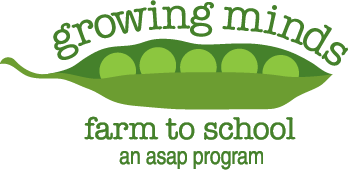
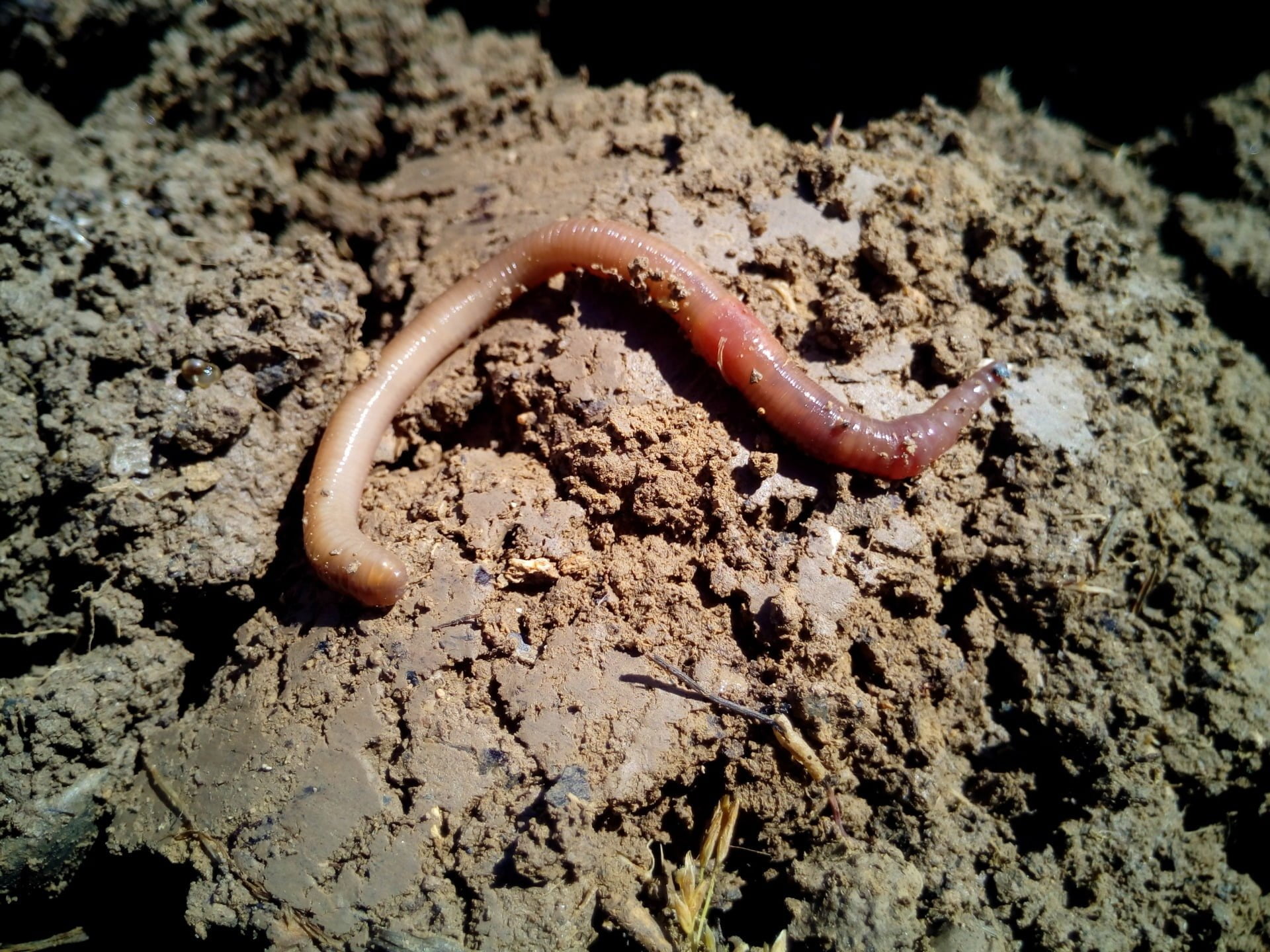
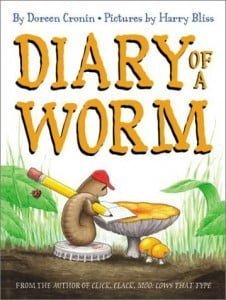 Books:
Books: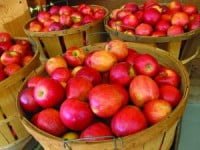 Local Food Recipes:
Local Food Recipes: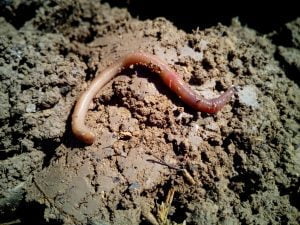 Educational Resources:
Educational Resources: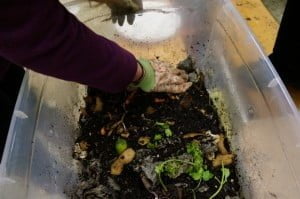 Build a worm bin:
Build a worm bin: